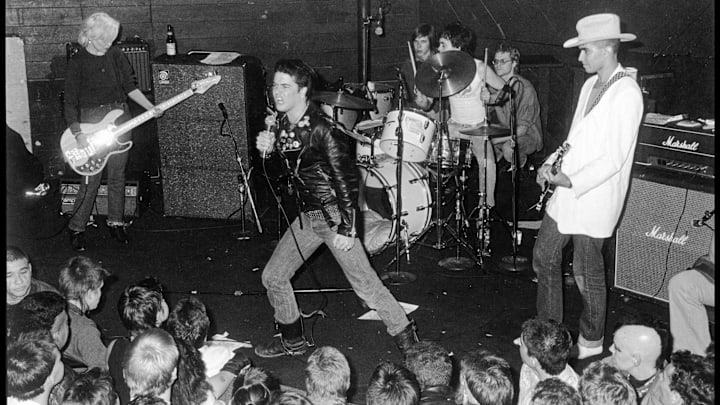The definition of punk rock is way up there on the list of “most hotly debated” topics in modern music. I won’t try to give you a definitive answer. I’ll just tell you what I think it is. You can take or leave it.
Punk rock, to me, is a DIY genre of music more concerned with attitude than with craftsmanship, and more interested in orgasmic pop than pristine production. It is often lo-fi and simple, though it certainly does not have to be. There is sophisticated punk, played by very talented musicians. They just never allow that sophistication or talent to cover up the raw emotion at the core of their music.
By this definition, punk music is probably the oldest type of musical expression there is. It is the genre you were playing when you picked up your first guitar and awkwardly strummed a discordant chord. When you mumbled or screamed out words that made sense to you, even if they were gibberish to everyone else. The key to being a punk is that you did it. You didn’t just think it or dream it. Punks, more than anything, are brave.
20 fantastic punk songs from the 1970s
There was nothing inherent in this definition that meant punk music had to be angry or dangerous, though if you focused only on the early punk bands that got media attention, you might think that’s all it was. Punks did tend to be loud. But lyrically, they could be thoughtful or juvenile. Musically, they could be melodic or cacophonous.
Their aspirations often ran counter to the mainstream, and so their look could bounce between skinhead and long-haired goth. If there was any unifying philosophy, it was that the status quo was stiflingly boring. Looking, acting, and sounding different from everyone else was elemental.
In time, and with greater commercial success, punk grew commodified and pasteurized like everything else. In time, even though the very origins of the movement rejected conformity, you couldn’t be punk if you didn’t look a certain way. But that’s for later. In the 1970s, punk music was still exploding and still largely free of major label interference. From garages in the suburbs of the UK and the USA, it rebelled against a brand of rock & roll that was beginning to show the signs of middle age. You didn’t have to be young to be a punk. But it helped.
At lightning speed, this brand of music moved from the proto punk of the late ‘60s and early ‘70s to classic punk of 1976-77, and onto the post-punk before the decade was over. Post-punk became a catchall phrase that attempted to define a lot of new directions under one blanket term.
Post-punk could be more melodic than its progenitors. Or it could be louder and more abrasive. However you choose to define it, the 1970s – especially the late 1970s – was when punk rock got a name, an identity, and a crucial place in the culture.
Here are 20 seminal tracks that define the era and the music better than a few hundred words could ever hope to.
